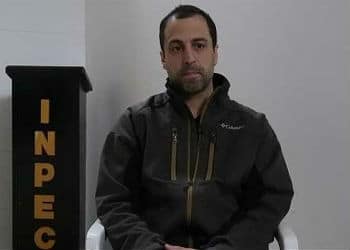The Waked money laundering investigation that has rocked the Panamanian establishment has recorded its first successful prosecution, but US authorities remain some way from proving their most serious allegations against one of Panama’s wealthiest and most powerful families.
On October 19, Nidal Waked Hatum, the man labeled by the Drug Enforcement Administration (DEA) as “one of the world’s most significant drug money launderers and criminal facilitators,” pleaded guilty to one count of money laundering conspiracy.
Waked admitted that he had fraudulently secured bank credit for one of his companies for the purchase of non-existent electronic appliances from two more of his companies. These fake transactions, which were supported by falsified invoices, were used to move funds between a bank in Panama and a bank in Miami.
In exchange for his confession, prosecutors agreed to dismiss two further charges and drop the cases against his companies Star Textile Manufacturing, and Vida Panama.
The dropped charges related to defrauding a bank to secure favorable interest rates and an alleged trade based money laundering scheme in which drug money was imported into Panama and used to purchase goods from Waked’s company in the Colon Free Trade zone, which were then shipped to retailers in Colombia, who transferred the profits to traffickers.
SEE ALSO: Coverage of Panama
Although the plea agreement does not mention the predicate crime, in previous hearings prosecutors described how they had witnesses prepared to testify that these transactions were used to move cash for various drug traffickers in Panama, Colombia and Mexico and shadowy contacts in Venezuela.
Among the evidence they were preparing to present were informants claiming to have knowledge of Waked’s ties to traffickers and wiretap intercepts in which he allegedly discussed money laundering options for clients in Venezuela.
Waked had previously denied all charges and stated his intention to clear his name, even securing character references from some of the most prominent people in Panama, among them members of the national legislature, the current mayor of Panama, and members of clergy, to help his case.
In prior hearings. his lawyer argued that as the suspect loans had all been paid back it was unclear whether any crime had taken place, and that if the alleged trade based money laundering took place, then Waked was merely an unwitting participant in the scheme.
Following his judicial U-turn Waked is now facing a maximum sentence of 10 years in prison.
InSight Crime Analysis
The confession of Nidal Waked marks a crucial first success in one of the most wide-ranging and controversial money laundering investigations the United States has ever launched.
The US publically revealed its investigations into the Waked money laundering network in 2016, when the Treasury Department added Nidal Waked, his uncle-Abdul, six associates and 68 companies to the “Kingpin List” of “Specially Designated Narcotics Traffickers.”
The US Office of Foreign Assets Control’s (OFAC) summary of the case alleges that Abdul Waked began laundering money for Colombia’s Medellín Cartel in the 1980s, and went on to work with numerous trafficking organizations including Mexico’s Sinaloa Cartel.
According to the accusations, the network used a bewildering array of techniques to launder money including real estate investments, financial vehicles, shell companies and property holdings. However, the most popular method allegedly involved bulk cash smuggling into Panama aboard commercial airlines, which was laundered through Waked’s duty free and free trade zone stores.
SEE ALSO: Coverage of Money Laundering
The decision to sanction the Waked business empire sent shockwaves through Panama, where members of the Waked family are among the most powerful people in the country. They own a business empire that extends throughout sectors such as import/export, real estate, construction, retail, hospitality, banking, pharmaceuticals, casinos and the media. Abdul Waked is also among the founders of the Colon Free Trade Zone — the second largest such zone in the world, and a long time money laundering hub.
The resulting sanctions against the Waked businesses had an immediate and devastating economic impact, with over 5,000 people losing their jobs from one of the targeted Waked businesses alone, according to Panamanian media. The move by the US also saw Abdul Waked retaliate with a legal suit claiming $165 million in damages from the Panamanian state for freezing his assets.
Faced with such consequences, as well as ongoing support from Panamanian elites, pressure was mounting on the United States to show results and prove it could back up its allegations with enough evidence to prosecute rather than just publically accuse.
The confession of Nidal will go some way to easing that pressure. However, given the scale of the accusations, a relatively light sentence on one count for one person means the US authorities still have a long way to go before they can prove their belief that the Waked business empire is also one of the world’s leading money laundering networks, and justify the real life consequences their accusations have caused.

